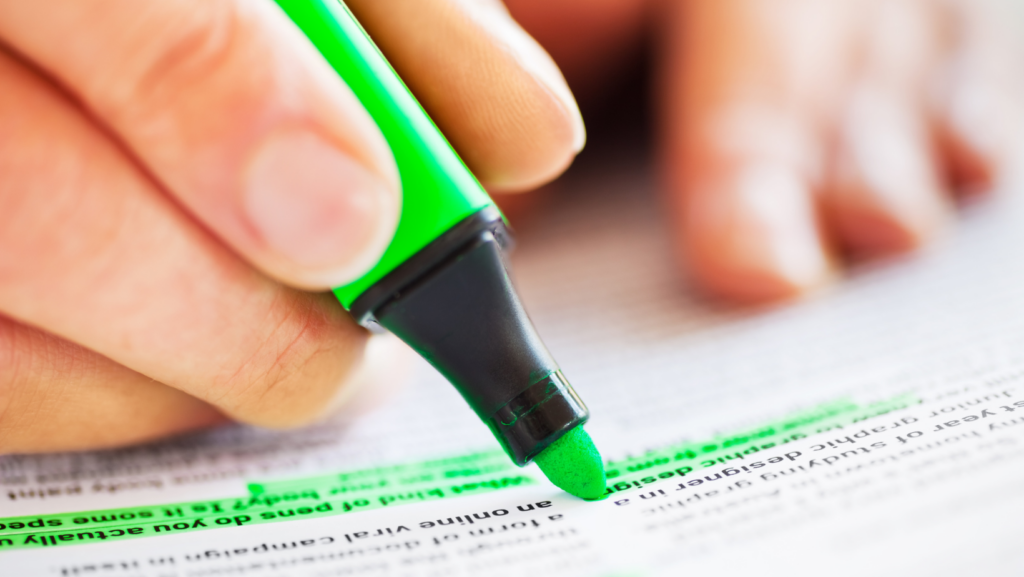
Let’s be honest: studying can be tough for everyone, even on the best of days. When you add ADHD into the mix, it gets even harder. Sometimes it feels impossible, as if your mind is being pulled in 100 different directions at once. How to study with ADHD?
ADHD (or attention deficit hyperactivity disorder) affects a person’s ability to focus, organize, and manage their time effectively. This means that if you are a college student with ADHD, long study sessions might not be very productive, and quiet environments don’t necessarily lead to quality study time. How do you solve this problem?
You need to find strategies that work for you. What helps one person might not work for another, so the best approach is to experiment and personalize your study methods. However, there are a couple of helpful ADHD study tips that many students find beneficial.
We’ve collected the most useful information on how to study with ADHD and are about to share it with you so you can figure out what works for you.
- ADHD Study Tips for Better Focus
- How to Break Down Study Sessions with ADHD
- Staying Organized with ADHD: Tips and Tools
- Creating a Distraction-Free Study Space
- Tips for Boosting Memory and Retention with ADHD
- How to Find Motivation to Study with ADHD
- Healthy Study Habits for Students with ADHD
 ADHD Study Tips for Better Focus
ADHD Study Tips for Better Focus
Yes, there are some techniques that can make focusing with ADHD a little easier:
- Break up tasks into smaller steps: Huge assignments can feel overwhelming. Divide them into smaller chunks that feel more manageable. Each task should take a maximum of 30 minutes to complete. Write the steps down in a checklist so you can check things off one by one – it’s actually satisfying!
- Use noise-canceling headphones or white noise: Blocking out random sounds can work wonders. If total silence feels too intense, try background sounds like white noise or instrumental music.
- Fidget tools or doodling: Sometimes, a little bit of movement can help you focus. Fidget spinners, stress balls, or even just doodling on scratch paper can help your mind awake without getting distracted.
- Focus apps: Try apps like Forest (where you grow virtual trees as you study) or Focus@Will (with music specially designed to improve concentration). They can keep you on track while adding a bit of fun to the process.

 How to Break Down Study Sessions with ADHD
How to Break Down Study Sessions with ADHD
Have you ever tried to study for hours and ended up more drained and distracted than productive? The Pomodoro Technique might help you actually get things done next time! Here’s how it works:
- Set a timer for 25 minutes and focus on one task.
- Take a 5-minute break to stretch, get a drink, or just breathe.
- Repeat this cycle and take a longer break after every four “Pomodoros” (25-minute sessions).
Tip: Just google “Pomodoro Timer” and you’ll find websites that already have the timers set up for you.
Breaking study time into these smaller, focused chunks can make it feel more doable and less overwhelming. The short breaks can actually help you stay refreshed and motivated. You can set small goals for each session if you’d like.

 Staying Organized with ADHD: Tips and Tools
Staying Organized with ADHD: Tips and Tools
Organization can feel like the ultimate challenge with ADHD, but small changes can make a big difference. Here’s how to stay organized with ADHD:
- Color-coding and planners: Use different colors for different subjects or tasks to make things visually clear and easy to find. Planners — either digital or on paper — can help you track assignments and deadlines.
- Digital tools: Apps like Google Keep, Notion, or Trello can help you organize notes, create to-do lists, and even set reminders. Plus, they’re accessible from your phone or laptop, so your study plans are always within reach.
- Task reminders: If you tend to forget assignments or due dates, set reminders on your phone or a digital calendar. Regular reminders can keep you on track and make sure nothing slips through the cracks.

 Creating a Distraction-Free Study Space
Creating a Distraction-Free Study Space
Here’s how to make your study environment work for you:
- Keep it as simple as possible: The fewer distractions, the better. Remove any unnecessary clutter from your desk or study area — only keep essentials like your laptop, notes, and maybe a water bottle nearby.
- Choose one consistent spot: Pick a spot that’s your dedicated study space. It could be a desk, a library nook, or even a cozy couch with a lap desk. The key is that it’s where you focus — over time, your brain will start to associate it with study mode.
- Add some comfort: A supportive chair, good lighting, and maybe a blanket can make a huge difference. If you’re comfortable, you’re less likely to get restless and start wandering off (mentally or physically).

 Tips for Boosting Memory and Retention with ADHD
Tips for Boosting Memory and Retention with ADHD
Memory challenges are common for students with ADHD, but with the right ADHD study tips, you can improve retention and recall:
- Active Recall: Instead of passively reading notes, try actively testing yourself. How? Cover up parts of your notes or flashcards and see if you can recall the information from memory.
- Flashcards: Digital flashcards (try apps like Quizlet or Anki) make it easy to review on the go. Flashcards are effective because they combine repetition with recall practice. This helps information stick better.
- Repetition and Review: Space out your study sessions over days or weeks instead of procrastinating and then cramming (yeah, we know, this can be hard). This method is called spaced repetition and it allows your brain to process and store information more effectively. Reviewing material regularly (like a quick review each morning) keeps it fresh in your mind. You just need a few minutes each day.
Check out our blog on how to improve memory for students for even more tips.

 How to Find Motivation to Study with ADHD
How to Find Motivation to Study with ADHD
Motivation can feel elusive, especially on days when distractions seem endless. Here are some tips to help you stay motivated, and for more, check out how to find motivation to study:
- Study with Friends: Studying in a group or with a friend can make it feel less like a chore. You can even quiz each other, share notes, or simply be accountability buddies.
- Celebrate Small Wins: Set mini-goals for your study sessions and reward yourself when you hit them — it could be with a snack break, a quick walk, or a favorite song. This gives you something to look forward to!
- Visualize Your Goals: Remind yourself why you’re studying in the first place. Do you want to ace an exam, pass a course, or achieve a bigger goal like land your dream job in the future? Keeping the bigger picture in mind for a sense of purpose!
This article on how to find motivation to study might also give you some more inspo!

 Healthy Study Habits for Students with ADHD
Healthy Study Habits for Students with ADHD
The mind and body are connected, so taking care of yourself physically can have a huge impact on your focus and energy:
- Take Regular Breaks: Long study sessions can be draining. Instead, take short breaks every hour to recharge. You can use these breaks to stretch, grab a snack, or just let your mind rest for a few minutes. Meditation is great too!
- Incorporate Physical Activity: Physical activity is great for focus. Even a quick walk or a few minutes of exercise can release endorphins and help you concentrate better.
- Prioritize Sleep: Sleep is so, so important for focus and memory. Don’t underestimate it! Try to have a somewhat consistent sleep schedule that allows you to get enough rest each night. Avoid late-night cramming if you can — it’s better to study over time and get a full night’s sleep before exams.

Final Thoughts: Success Tips for Studying with ADHD
It’s true that studying with ADHD is harder than studying without it, but with the right ADHD study tips and strategies, you can make it much easier. Everyone’s brain is different, so don’t be afraid to try out various methods to see what works best for you.
If you want to learn more about effective study habits, check out how do top students study for additional inspiration.
With these tools and a bit of patience, you can create a study routine that maximizes your strengths and helps you succeed.




